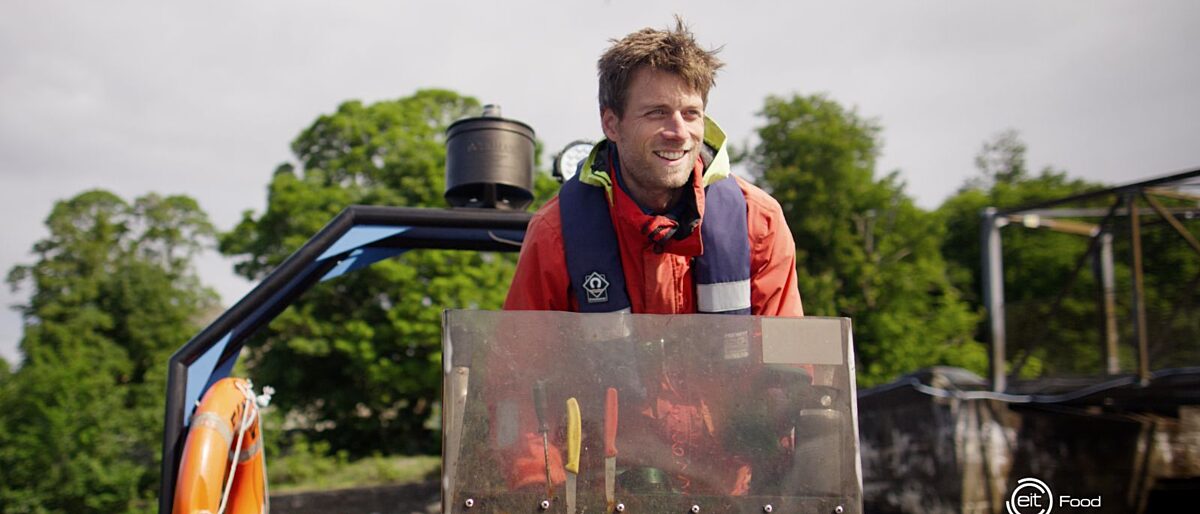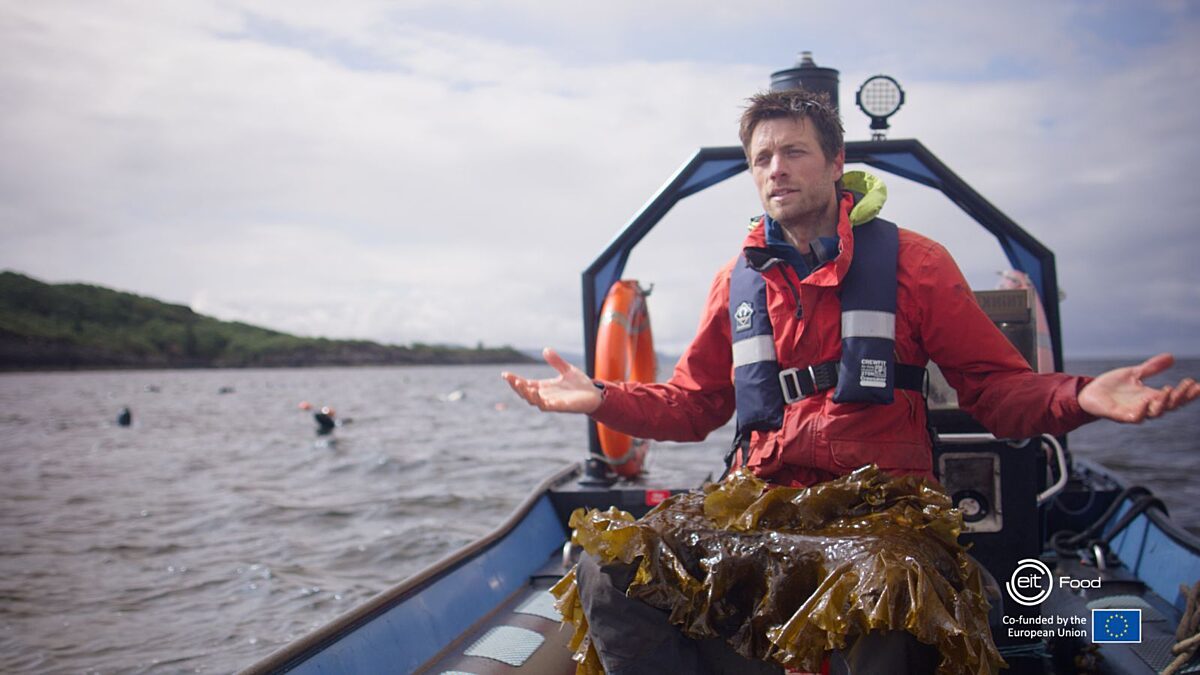
Explore a career as a marine scientist
In this blog we deep-dive into what a career as a marine scientist entails.
Our EIT Food Day in the Life series is an educational resource aimed at young people and professionals who are interested in the agrifood job market. We profile a wide range of careers in the agrifood sector, interviewing professionals to find out what their job is like, why it is important, and how you (or someone you know) could take up the profession.
In this blog edition, we explore a day in the life of a marine scientist!
You will learn:
- What a typical day is like as a marine scientist
- The main responsibilities of a marine scientist
- Why this industry matters to our wider food system
- How you can pursue a career in the marine sector

Meet Adrian Macleod, a Marine Scientist who works for the Scottish Association for Marine Science (SAMS), an EIT Food partner. He tells us what life is like working as a scientist in aquaculture, and how you can train to become one too.
What does a typical day as a marine scientist involve?
Adrian spends his days working from the SAMS marine research facility near Oban, on Scotland’s West Coast. This facility contains both a state-of-the-art laboratory space for performing highly controlled experiments on seaweed and other marine materials, whilst also being positioned right next to the sea which allows the staff to “hop on a boat” to their at-sea facilities

Adrian’s work involves designing and implementing complex experiments that help SAMS to,
“gain knowledge and facilitate the development of new techniques and new technologies for seaweed aquaculture.” These experiments suggest why SAMS is a world-leading institution in aquaculture research and innovation, particularly around seaweed. Adrian’s work is varied: beyond experiments and sea-based responsibilities, he also provides teaching and consultancy to students and other businesses.
Why is aquaculture an important industry to work in? What are the biggest challenges in the sector?
Aquaculture is the fastest growing food sector, as the demand for farmed seafood continues to rise. Adrian notes that:
“The world’s population is increasing, and we are going to need more food and more resources as we go into the future.”
This is one of the reasons Adrian was drawn towards a career in aquaculture: it has great potential to help solve humanity’s food and nutrition challenges. In particular, the way aquaculture works closely in tune with nature is appealing to Adrian:
“The sea provides an opportunity to work with natural nutrients and light and other resources which will allow us to grow food and other materials.”
This combination of natural and science-led processes means we can provide these resources for future generations.
What projects does a marine scientist work on? For example, what are you working on at the moment?

One of Adrian’s current projects revolves around Sugar Kelp, a type of seaweed that can be grown into a “very healthy foodstuff”. After growing the kelp for a number of years in one of SAMS’ at-sea facilities, they have decided to explore how the surrounding environment impacts the kelp’s composition and quality. Adrian has had a key role in designing an ongoing experiment where they are adjusting cultivation depth throughout the season to see how this affects yield and quality. This should enable SAMS to maximise the benefits of Sugar Kelp for society.
How can I get involved in this area? What pathways are there into your role?
One pathway into this role is an academic route. For example, a degree in marine biology is a common route for scientists to take at the start of their career. However, Adrian stresses that
“You don’t have to go down the classical marine biology route in terms of the academic learning.” Since it is such a complex and varied sector, “there are many different roles which aquaculture and seaweed aquaculture can allow you to do.”

The science that Adrian does is only one part of the wider aquaculture ecosystem. There is a great need for practical skills like welding and boat work. Every aquaculture organisation also needs people working on the commercial side of things to ensure the long-term viability of their work. Overall, Adrian makes clear that ,
“There’s opportunities for a range of different people and skillsets in aquaculture”.
The most important thing is to have passion for the sector!
What is the best part of the job?
For Adrian, the best parts of his job are the practical aspects. Adrian really enjoys being at sea physically working at this site. The combination of working both inside and outside, on totally different tasks that are all related to his overall passion for the sea, makes Adrian’s job varied and stimulating.
Adrian also feels that his job enables him the opportunity to put his own personal perspective on his work to achieve his goals. Working as a Marine Scientist at SAMS means he has freedom to make observations and try things in a different way that might progress the techniques and the technology.
Adrian sums up being a marine scientist in three words:
Science, innovation, (the) outdoors!

Download our agrifood careers tips booklet
We have created a careers tips booklet, so you can explore how to pursue a job in the agrifood industry
About EIT Food’s Day in the series
EIT Food’s Day in the Life Series is a video series that explores the variety of careers that our agrifood system has to offer. The aim of the series is to raise awareness of the range of high-skilled and highly rewarding jobs that the food and farming sector has to offer and inspire younger generations to consider one of these careers for themselves.
More blog posts by EIT Food West


Reformulating with the community in mind




